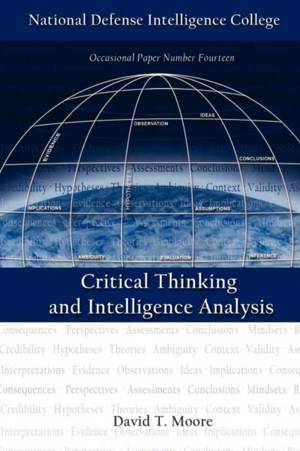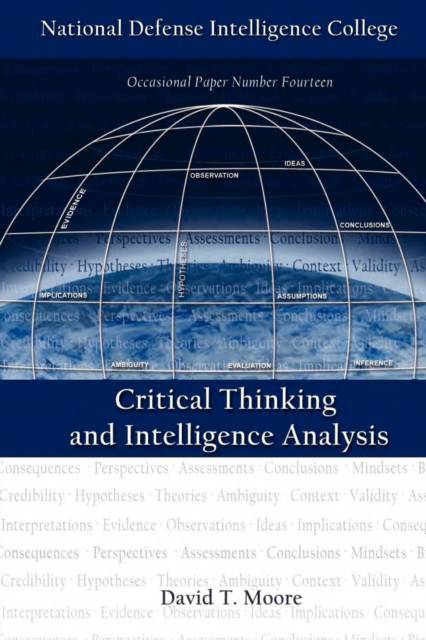
- Afhalen na 1 uur in een winkel met voorraad
- Gratis thuislevering in België vanaf € 30
- Ruim aanbod met 7 miljoen producten
- Afhalen na 1 uur in een winkel met voorraad
- Gratis thuislevering in België vanaf € 30
- Ruim aanbod met 7 miljoen producten
Zoeken
Critical Thinking and Intelligence Analysis (Second Edition)
David T Moore, National Defense Intelligence College
Paperback | Engels
€ 19,45
+ 38 punten
Omschrijving
Analysts and analysts alone create intelligence. Although technological marvels assist analysts by cataloging and presenting data, information and evidence in new ways, they do not do analysis. To be most effective, analysts need an overarching, reflective framework to add structured reasoning to sound, intuitivethinking. "Critical thinking" provides such a framework and goes further, positively influencing the entire intelligence analysis process. Analysts who adopt critical thinking stand to improve their analysis. This paper defines critical thinking in the context of intelligence analysis, explains how it influences the entireintelligence process, explores how it toughens the art of intelligence analysis, suggests how it may be taught, and deduces how analysts can be persuaded to adopt this habit.
Specificaties
Betrokkenen
- Auteur(s):
- Uitgeverij:
Inhoud
- Aantal bladzijden:
- 158
- Taal:
- Engels
Eigenschappen
- Productcode (EAN):
- 9781780391182
- Verschijningsdatum:
- 1/02/2010
- Uitvoering:
- Paperback
- Formaat:
- Trade paperback (VS)
- Afmetingen:
- 156 mm x 234 mm
- Gewicht:
- 231 g

Alleen bij Standaard Boekhandel
+ 38 punten op je klantenkaart van Standaard Boekhandel
Beoordelingen
We publiceren alleen reviews die voldoen aan de voorwaarden voor reviews. Bekijk onze voorwaarden voor reviews.







